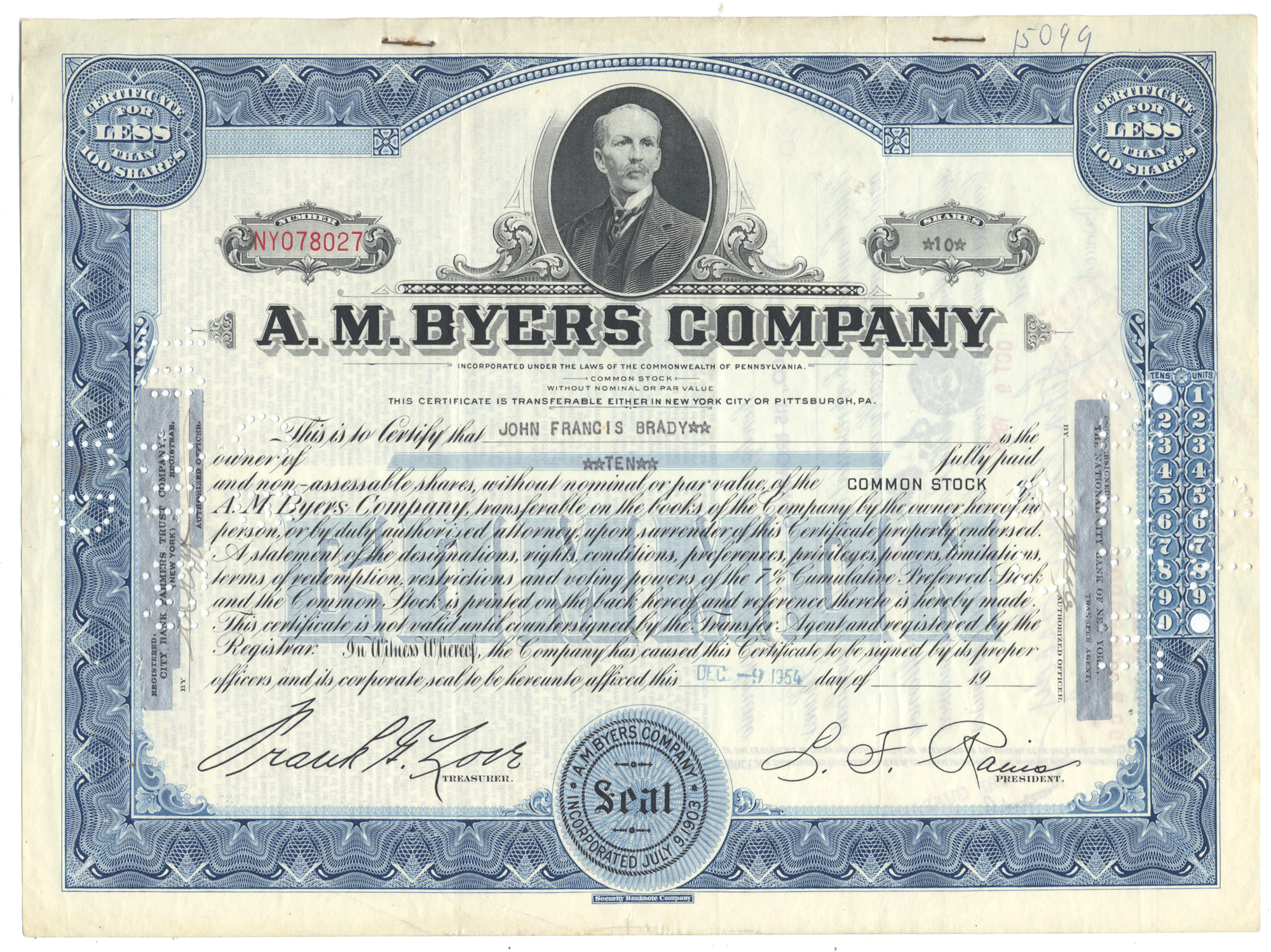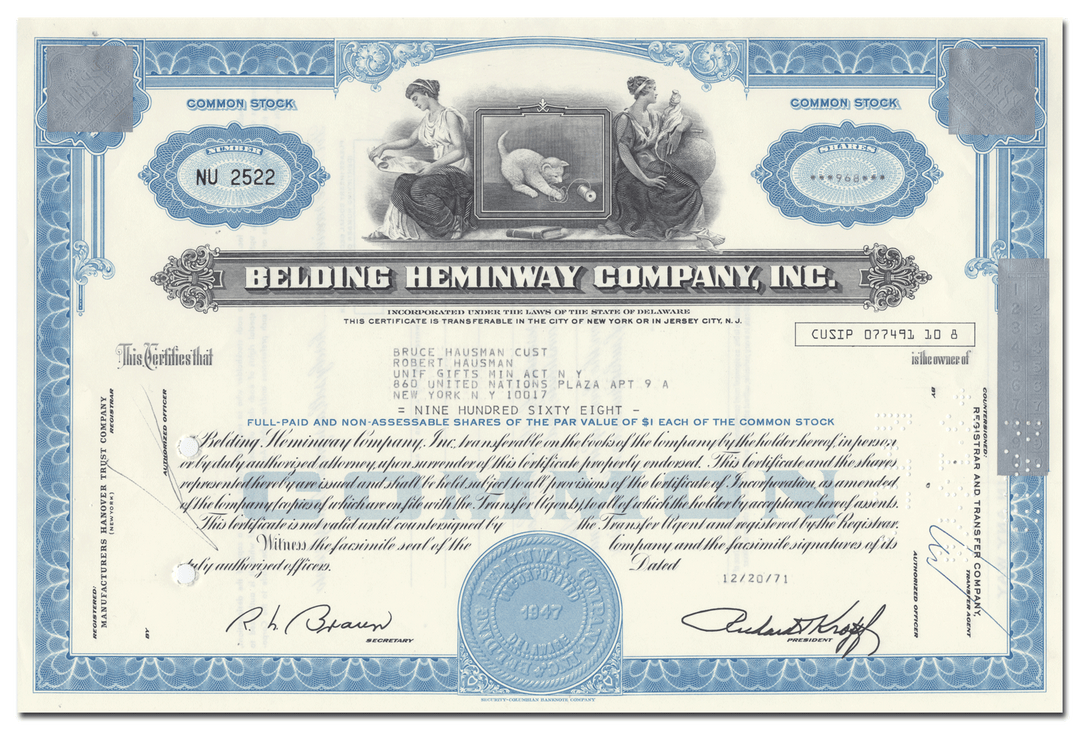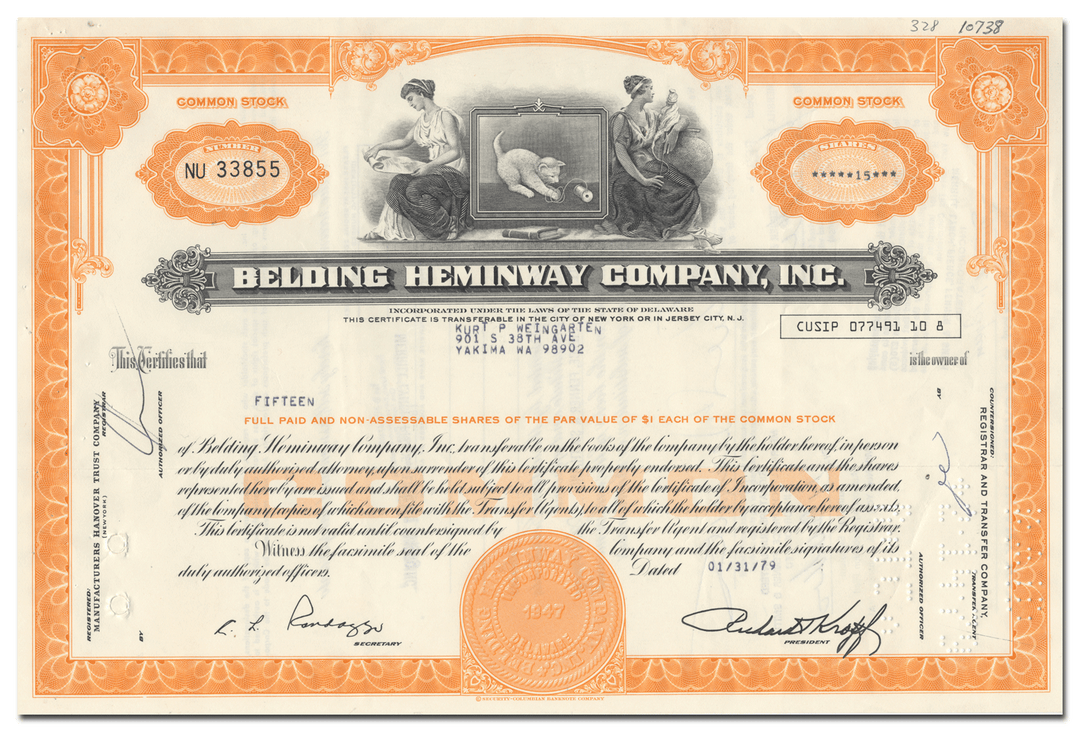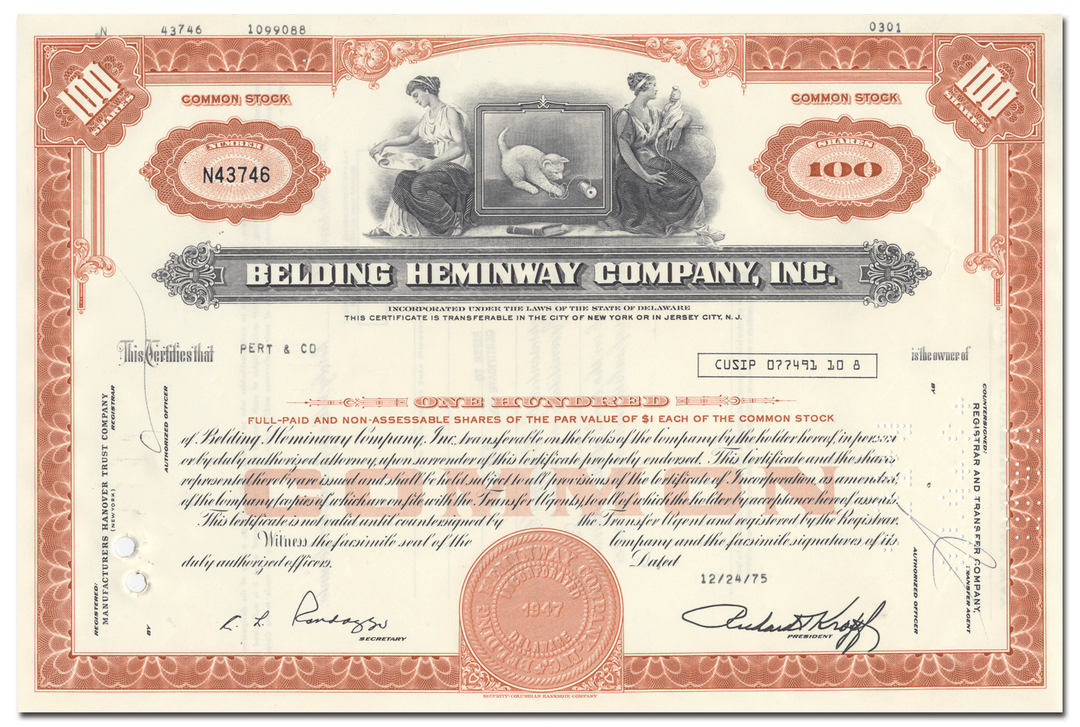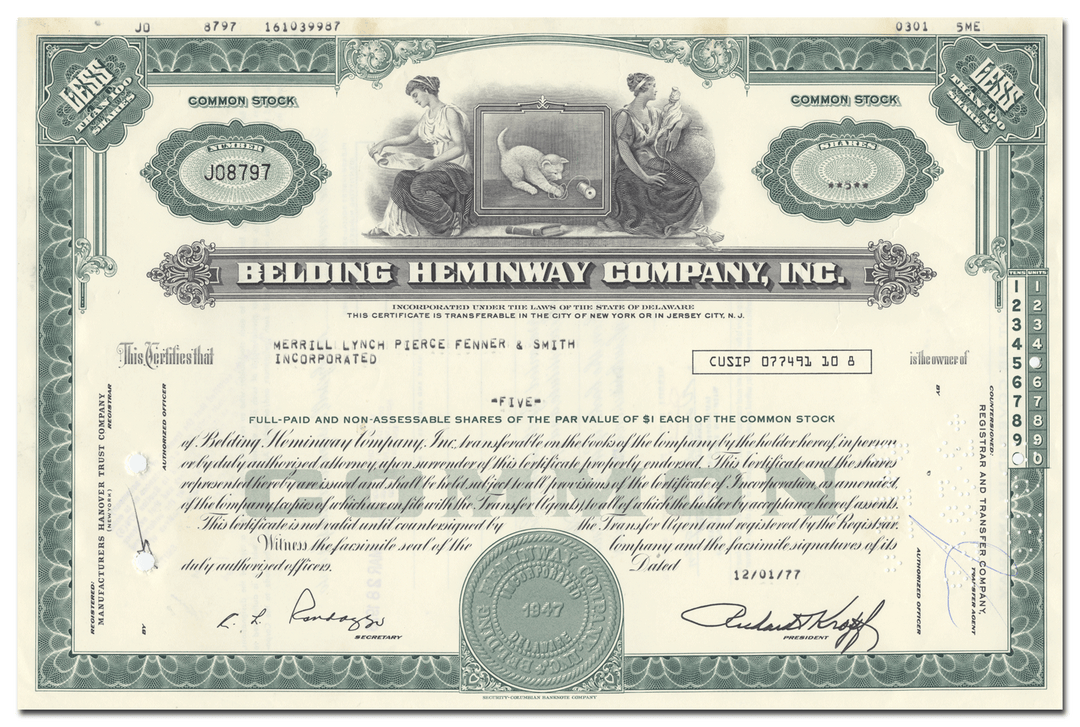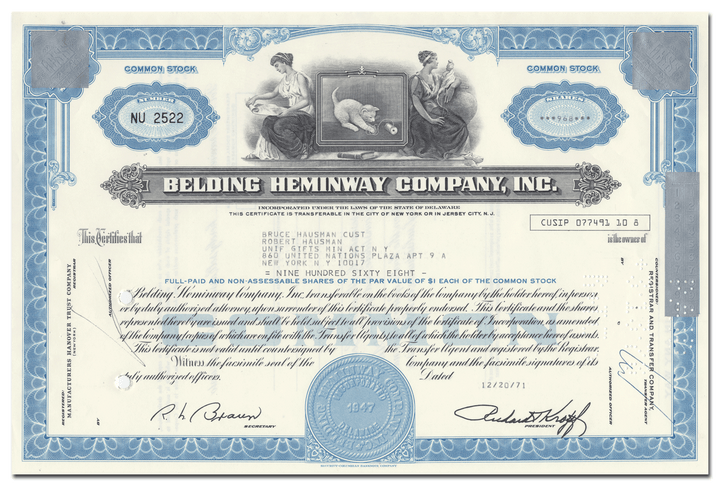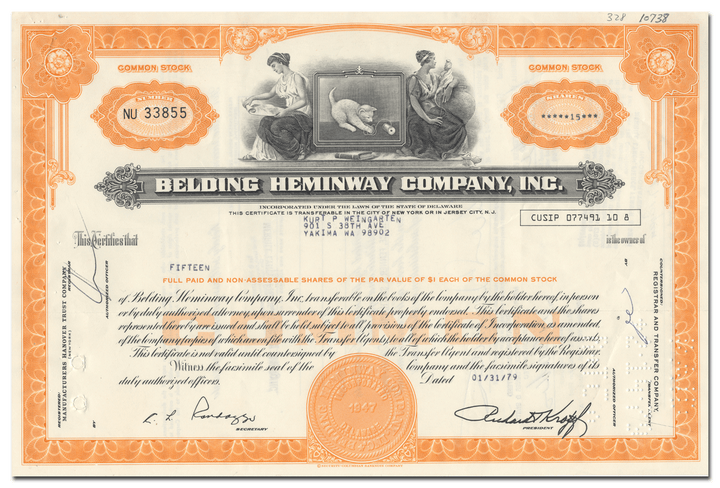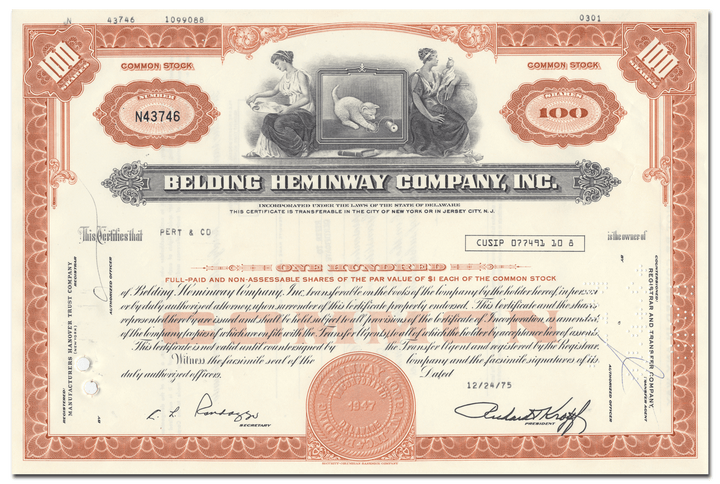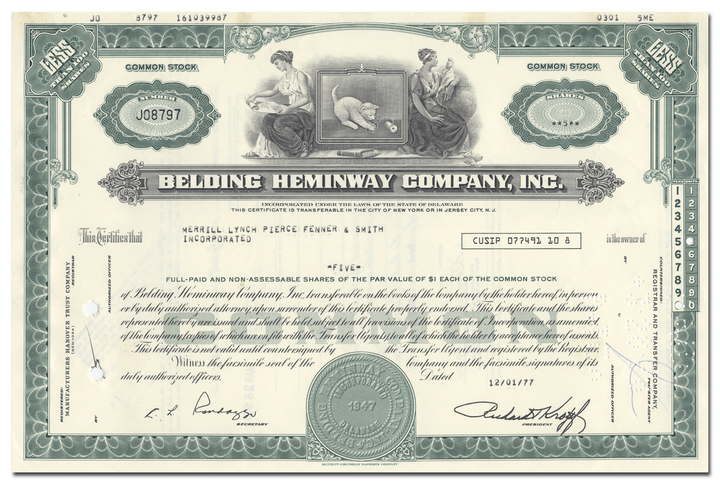Belding Heminway Company, Inc.
- Guaranteed authentic document
- Orders over $100 ship FREE to U. S. addresses
Product Details
CompanyBelding Heminway Company, Inc.
Certificate Type
Common Stock
Date Issued
1970's
Canceled
Yes
Printer
Security-Columbian Bank Note Company
Signatures
Machine printed
Approximate Size
12" (w) by 8" (h)
Images
Representative of the piece you will receive
Guaranteed Authentic
Yes
Additional Details
NA
Historical Context
The foundation of this company was laid in 1860 when Hiram H. Belding and Alvah N. Belding started from their home in Belding, Michigan (the western homestead of the family after leaving the east in 1858) selling silk from house to house. This silk was purchased for them by their brother, Milo M. Belding, who was then residing at their common birth-place, Ashfield, Massachusetts. This enterprise soon assumed the form of a large business and in a year after starting, the Belding brothers had extended the scope of their trade until it required the services of several teams, and embraced the largest part of the jobbing trade in sections in which they were operating.
In 1866 the Belding Brothers began manufacturing silk thread in Rockville, Connecticut. In 1872 the increased demand for their products compelled them to build an additional mill in Northampton, Massachusetts, where they manufactured various broad goods and embroidery silks of every description. The brothers found expansion necessary and established themselves in Belding, Michigan in 1890. The Belding location was their largest single enterprise, operating four mills. Mill No. 1 was for silk thread exclusively, Mills No. 2 and 3 for fabrics and Mill No 4 for manufacture of sewing and embroidery silks of every description as well as a variety of crochet cotton.
In order to market their manufactured product, Belding Brothers & Co. established salesrooms at Chicago, New York City, Philadelphia, St. Louis, Boston, Cincinnati, St. Paul, Baltimore, San Francisco, New Orleans, Montreal and Toronto. From these salesrooms traveling salesmen visited every city, town, and hamlet in the United States.
The conditions at Belding, Michigan, were such that it became necessary to employ large number of young women who were not residents of the town and in view of obtaining the most intelligent and desirable class, which the nature of their business required, the Belding Brothers & Company built and maintained three high-class boarding houses, “The Ashfield,” “The Belrockton” and “The White Swan,” with ample accommodation for one hundred and twenty-five persons each.
The dormitories were all handsome pieces of architecture and were fitted with all the modern conveniences of their day. Steam heat, hot and cold water, baths, electric lights, free libraries, and comfortably furnished in order to afford the young women employed by Belding Brothers & Co. as good a home as could be found only among the more prosperous citizens of the country. Maintenance of these buildings was not philanthropy, but a business proposition. The Belding Brothers experience had taught that highly intelligent, contented, well-paid employees would produce goods of superior quality and would inspire the success of the establishment. The dormitories were presided over by a matron and governed by rules and regulations similar to those of college dormitories of previous years.
the company also had a hospital at Belding for the convenience and welfare of their employees and their families. The charges were very modest, the equipment modern, and staff well-trained.
All of the dormitories except the Belrockton have been torn down. The Belrockton acts as the Community Center and houses the Belding Museum. Work has recently been completed to restore the porches to the building.
Belding Brothers & Company merged with Heminway Silk Company in 1925 and did business as Belding-Heminway. Soon after, the company was acquired by Corticelli Silk Company and did business as Belding-Heminway-Corticelli. The last mill in Belding closed in 1932.
Related Collections
Additional Information
Certificates carry no value on any of today's financial indexes and no transfer of ownership is implied. All items offered are collectible in nature only. So, you can frame them, but you can't cash them in!
All of our pieces are original - we do not sell reproductions. If you ever find out that one of our pieces is not authentic, you may return it for a full refund of the purchase price and any associated shipping charges.




